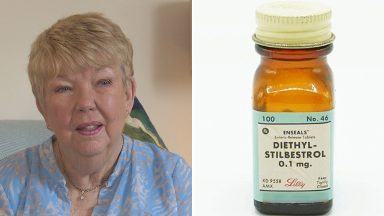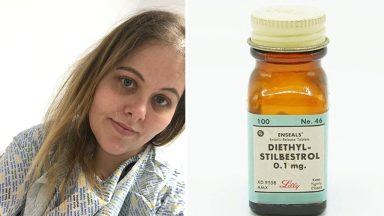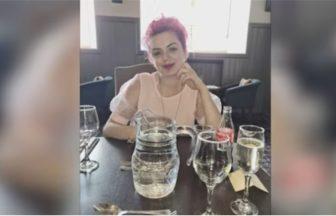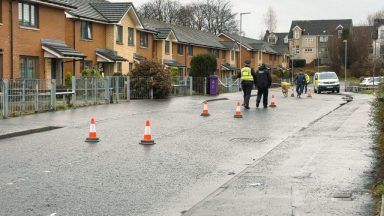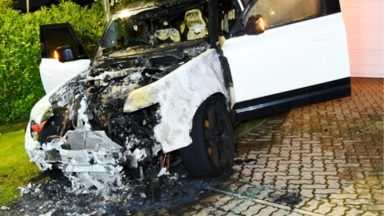A Scots grandmother says she’s had health problems all her life after taking a pregnancy drug linked to cancer for less than a week.
Diethylstilbestrol, commonly known as DES, was given to an estimated hundreds of thousands of women between the 1940s and 1980s in the UK.
Health experts believe that if the drug were taken during pregnancy, effects could have been passed down to future generations.
DES was supposed to prevent miscarriages, but has been found to have led to cancer and infertility among other health complications for the children of the women who took it.
This year, STV News has spoken to a number of Scottish women of all ages who have been DES-exposed.
Lorraine Hopper was 23 years old when she gave birth to her firstborn in 1969.
Have you or someone you know been impacted by DES exposure?
Tell us your story.
She was given DES to stop lactation, and took six pills on day one, followed by three a day for the next four days before stopping.
After just two days of taking the drug, she had developed flu symptoms and was covered from head to foot in a rash, which doctors told her they were “horrified” at.
What followed for the mum-of-two has been a lifetime of health complications, including being diagnosed with bowel cancer and having a hysterectomy before she turned 50.
Now 79, Lorraine, from Edinburgh, says she believes she’s one of the lucky ones and maintains that being given DES lies at the root of her health problems.
She told STV News: “I’m one of the lucky ones because I was only on it for four or five days. Because of giving birth, it mucked my whole hormonal system up.
“Nobody in my family had ever had cancer, but I was diagnosed with bowel cancer at 45. The doctors couldn’t understand why I got it so young.
“I’ve had a hell of a lot going on, and no one in my family has had the same problems I have.”
Incidence rates for bowel cancer are highest in people aged 85 to 89 in the UK, according to Cancer Research UK.
Lorraine added: “I wish it never happened. I wish I had only been able to feed my baby myself; it would never have happened in the first place.
“I am worried about my daughter and granddaughter, especially when it’s something that could have been avoided.”
Following an ITV News investigation, the Medicines Regulator (MHRA) admitted it falsely claimed that doctors were advised to stop using the drug in pre-menopausal women in 1973.
The drug was banned in the United States in the 1970s after studies linked the use of DES with breast, cervical, and vaginal cancers.
Campaigners are calling for anyone who may present with potential symptoms of having DES exposure passed down from their mothers to be fully screened.
There are fears that GPs in the UK, including in Scotland, may not be fully aware of the drug and what to do if a patient presents with health implications caused by DES.
Now, a support group called DES Justice UK, comprised of over 300 affected people, is calling for a public inquiry.
This week, the UK Government apologised to women affected by the scandal.
Health secretary Wes Streeting recognised the “harrowing” experiences of the people affected by the drug, adding that women “understandably feel that their healthcare system failed”.
‘We thought they knew what they were doing’
June Barr from Overtown in North Lanarkshire was prescribed the drug in the 1970s. She was diagnosed with lobular cancer in 2003.
“It wasn’t told anything about [DES] at the time, you didn’t ask back in the 70s. We thought they knew what they were doing,” she told STV News.
“I have had breast cancer, and there’s no cancer in my family. I was diagnosed after I found a huge lump.
“The cancer was very aggressive, and they told me I needed a total mastectomy and had all my lymph glands removed as a precaution.”
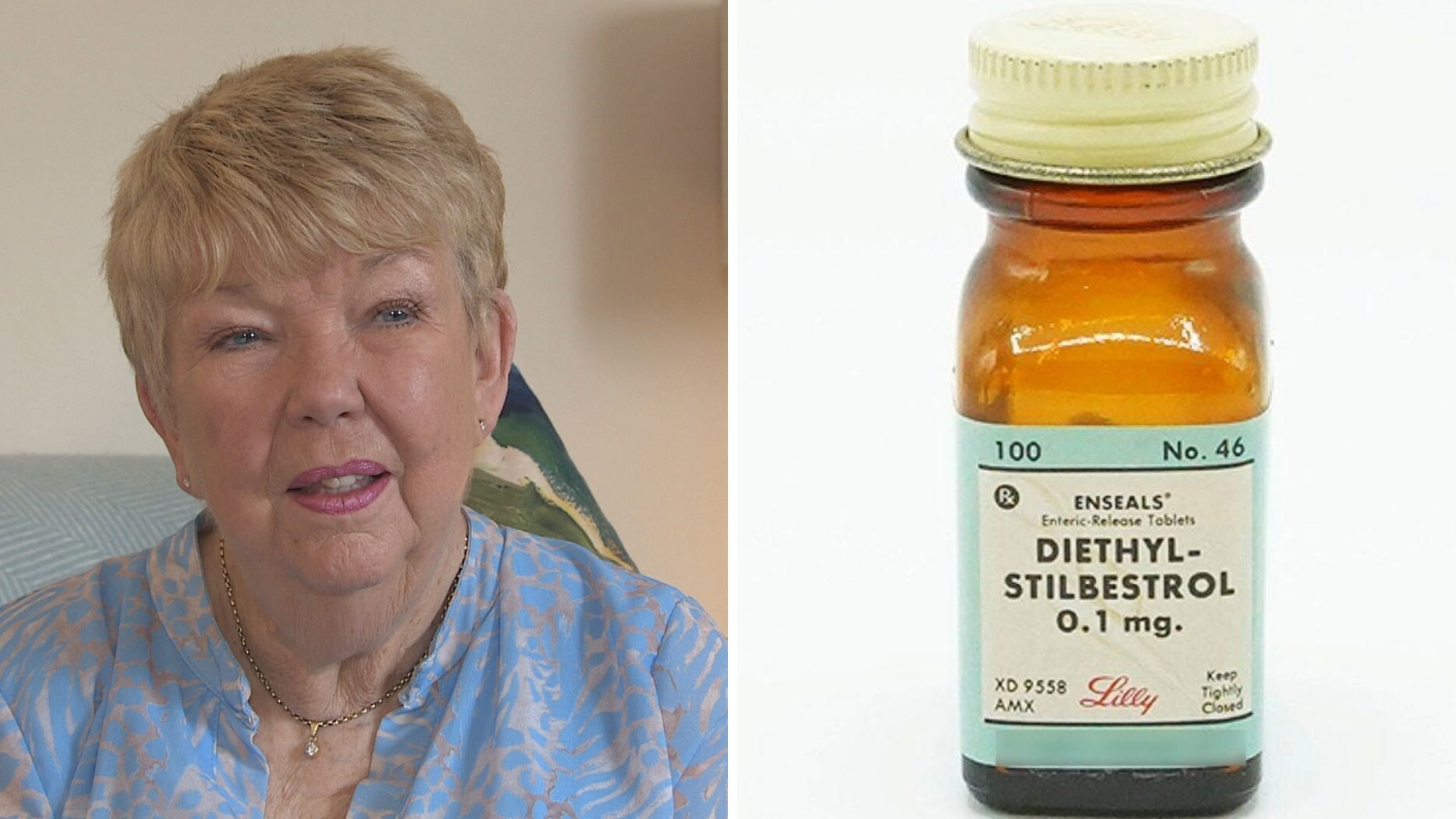 STV News
STV NewsShe was then told a few short months later she had lymphoedema as a result, a long-term chronic condition which causes swelling in the body’s tissues.
She added: “I can’t go out on my own, my daughter has to come with me. It has impacted my life, but I’m so grateful to be alive.”
‘I was never told my cancer was caused by anything else’
Kimberly Brown noticed a growth that never went away for a year, before a gynaecologist told her she had “never seen anything like it”, but suspected it was cancer.
She was diagnosed with a rare form of clear cell carcinoma vaginal cancer in her early 30s, and was told by doctors it may have been linked to a drug her mother was given.
But Kimberly believes it was actually her grandmother who had been exposed to DES while pregnant with her mum in the 1960s.
She told STV News in September: “I hadn’t processed much of it at first, I didn’t know my cancer was caused by that drug.
“I was never told it was caused by anything else, and finding the DES support groups, I didn’t feel as alone as I had.
“The cancer changes your whole life.”
The mum-of-three from Balquhidder said women across the country trusted doctors and GPs, only to be given something they shouldn’t have been exposed to.
She said: “There’s clinical negligence here. They knew it was causing issues and never stopped it. It is good that they have acknowledged it.
“We put a lot of faith in our doctors. We trust that they know better than they do – we take it blindly sometimes.”
On the support group, Kimberly added: “We want recognition for what’s happened.
“My main message to everyone is to keep at it, you know your own body. If it doesn’t feel right, keep your GPs informed and take your health seriously.”
What was DES used for in Scotland?
 Dr Wael Agur
Dr Wael AgurDr Wael Agur, a consultant urogynaecologist in Glasgow, said the drug was used for a variety of reasons in Scotland, mainly to stop breast milk if a mother’s baby had died.
It was also prescribed to unmarried mothers who were forced to give up their babies.
Women also took DES to stop vomiting during the early weeks of pregnancy, and to prevent miscarriage, especially if bleeding developed in the first few weeks.
Research being conducted in the US is screening hundreds of thousands of women to see if the effects have been passed down to granddaughters.
In 2011, a study found cumulative risks in women exposed to DES were higher compared to those not exposed for infertility, spontaneous abortion, preterm delivery and loss of second-trimester pregnancy.
Dr Agur told STV News: “It is historical, but we are seeing this in the second generation, and there is some research now to suggest that the third generation may also be affected, but the research is still ongoing.”
“It’s going to be several years, at least another decade, before we see the full-blown picture of this,” he added.
What impact did DES have on those prescribed it in Scotland?
Dr Agur said that the implications of DES can be missed because they develop before and after the screening age.
He said: “The main health implication was increased risk of breast cancer in their daughters. Women who had DES in the ’60s and ’70s may have been pregnant with baby girls.
“Those girls are called the DES daughters, and this is where the main health implications are.
“The types of cancers that are caused by the DES are different from those that we screen for in the current screening programme.
“The current screening programme, for example, starts at 25 and stops at 65. However, the current cancer can develop in younger women, before the screening age starts, and in older women after the screening age stops.
“The duration of screening needs to increase, and also the method of screening. There needs to be additional tests, because the standard screening tests are less likely to pick this up.”
He added: “England and Australia have made some advances in this. Australia has modified its screening programme to be customisable to those who had the DES exposure.
“Women with DES exposure get screened for longer and get better screening testing in places like Australia, but that is not happening in Scotland.
“We need improved awareness among doctors and women. If doctors don’t know about it, they won’t be able to pick it up.
“The additional screening programme will need to be prescribed for those at high risk, or those we already know have been exposed. We have a duty to these women.”
Medical regulator admits ‘inaccurate’ statements
The Medicines Regulator (MHRA) admitted it inaccurately claimed that doctors were advised to stop using the drug in pre-menopausal women in 1973.
A spokesperson for the MHRA said: “Our sympathies are with those harmed by the historic use of Diethylstilbestrol (DES). We apologise for this error and for any distress caused to patients and the public.
“At the time of the communication in 1973, usage in pregnancy in the UK was considered to be much lower than in the US, which, coupled with the lack of UK cases of affected children, led to the conclusion that communicating to doctors on the available evidence was sufficient.”
It added: “There has been a step change in reporting and record keeping since this time and today’s regulatory frameworks are significantly different, with much stricter post-authorisation monitoring allowing for earlier identification and action on emerging safety issues.
“The MHRA keeps the safety of all medicines under continual review.”
Health secretary Neil Gray said: “I have the utmost sympathy for the women who may have been harmed by stilbestrol.
“The regulation of medicines is reserved to the UK Government, meaning any further investigation into stilbestrol would ultimately be a matter for them to consider.”
Members of DES Justice UK met in the Houses of Parliament in Westminster earlier this month to officially launch the group and meet some of the 30 MPs who are lobbying the government to take action.
Clare Fletcher, partner at Broudie Jackson Canter, representing the UK victims of the DES scandal, said: “It is time that the government took some responsibility for the mistakes of the past and set up a statutory public inquiry to look into how this was allowed to happen.
“It is a national disgrace that victims have been ignored, disbelieved and humiliated when all they wanted was fair treatment.
“It is crucial that these sufferers are finally given the truth and afforded access to the compensation they deserve.”
Information or support about the issues raised in this report can be found online:
- Information on Diethylstilbestrol (DES) Exposure and Cancer
- Legal firm Broudie Jackson Canter has set up a campaign page for DES-exposed people
- There is information on cervical cancer and breast cancer on the NHS website
- If you think you need medical help right now, contact your GP or visit 111 online, or call 999 in an emergency.
Have you or someone you know been impacted by DES exposure?
Tell us your story.
Follow STV News on WhatsApp
Scan the QR code on your mobile device for all the latest news from around the country


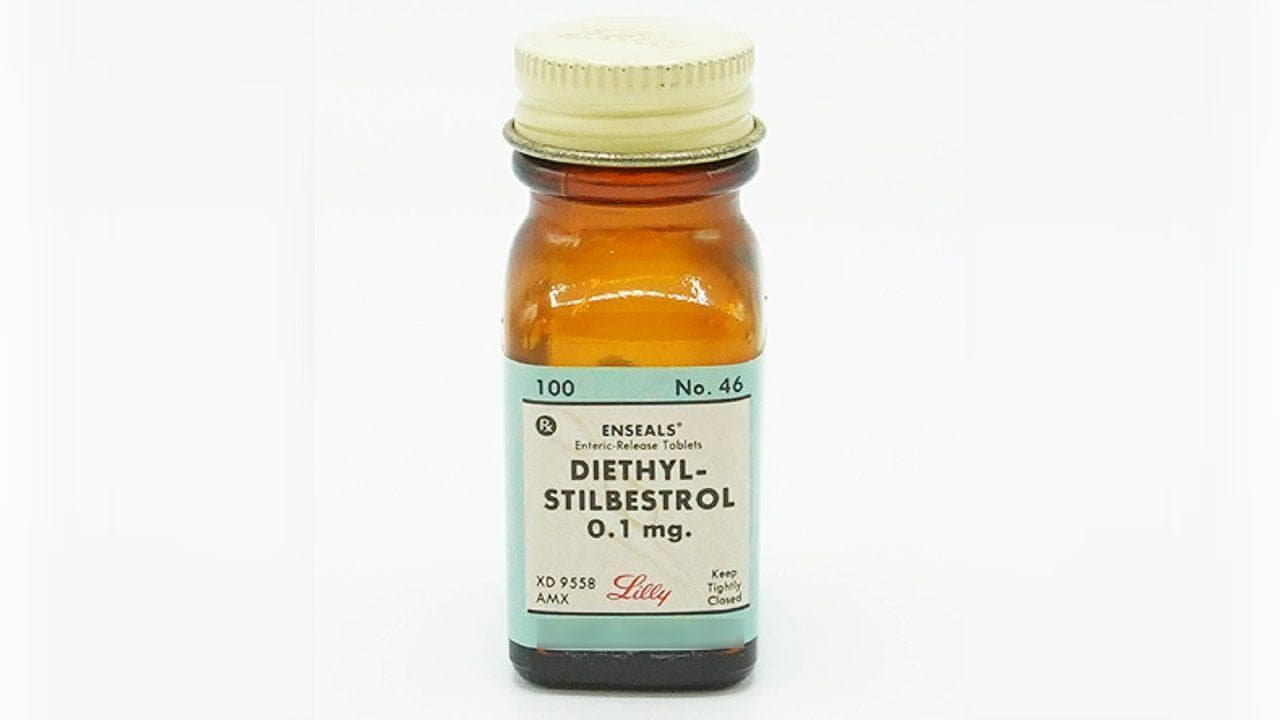 FDA
FDA